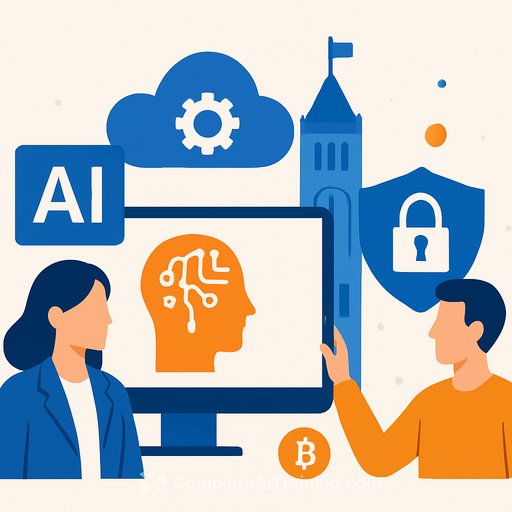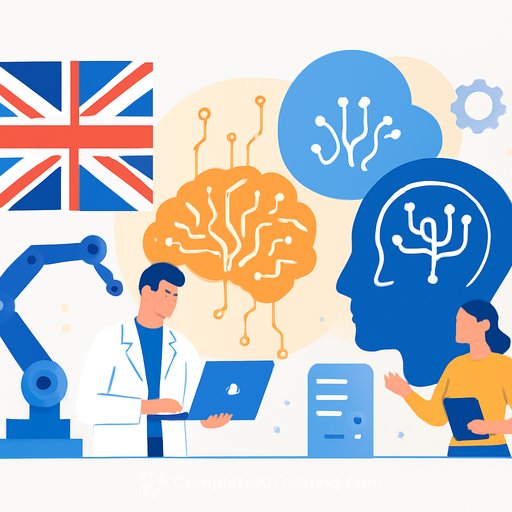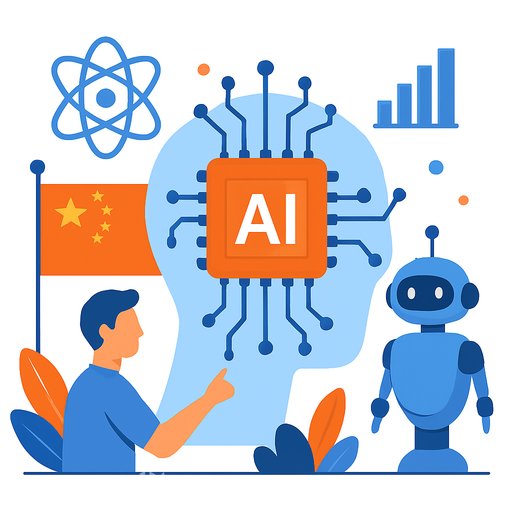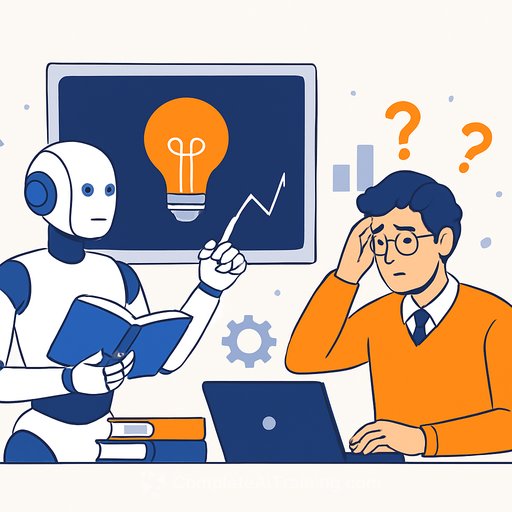Trump Announces 'Genesis Mission' To Accelerate Scientific Discovery With AI
The United States is rolling out a national AI initiative built for science. President Donald Trump has launched the Genesis Mission, a programme that links federal labs, supercomputers, and private industry into one coordinated research network.
The goal: move faster on hard scientific problems by pairing top-tier compute with structured data and automated experimentation. Major tech firms including Nvidia, AMD, Dell Technologies, HPE, and Anthropic are joining the effort.
What is the Genesis Mission?
An executive order creates a national AI programme that connects America's largest supercomputers, data centres, and the 17 national laboratories into "one cooperative system for research." A core feature is a "closed-loop AI experimentation platform" - an integrated pipeline where models train, test, and iterate against real scientific data and experiments with minimal human latency.
Think of it as a unified environment that reduces handoffs between teams and systems. Fewer bottlenecks, tighter feedback, and faster time from hypothesis to validated result.
What problems it targets
According to the White House, the mission tackles high-impact scientific challenges across medicine, energy, and materials science. Officials likened the ambition to the Apollo programme in scale and urgency.
- Biomedicine: model-driven discovery and design, improved clinical insights, and faster translational cycles
- Energy: smarter grid operations, stability planning, and system-level optimization
- Materials science: simulation and discovery workflows that compress years of iteration into weeks
Who's involved
Partners include Nvidia, AMD, Dell Technologies, HPE, and Anthropic. Nvidia said the mission aims to link supercomputers, AI systems, and even future quantum resources into "the most complex scientific instrument ever built."
The backbone comes from the U.S. national labs and their HPC assets. If you work with or depend on that ecosystem, expect deeper integration across facilities and a stronger push for shared standards. You can see the national labs footprint here: U.S. Department of Energy National Labs.
Why this matters for scientists and engineers
Michael Kratsios, the president's top science adviser, framed Genesis as a major shift in how science gets done - linking world-class data with leading American AI to drive new results in medicine, energy, materials, and more.
- Integrated compute + data: fewer silos between HPC, AI training, and experimental systems
- Faster iteration: feedback loops that shorten the gap between simulation, lab work, and validation
- Reproducibility by design: standardized pipelines that make results easier to audit and extend
- Broader access: more teams gaining time on serious infrastructure
Energy and infrastructure
Rising AI demand has raised concerns about grid capacity. Energy Secretary Chris Wright said Genesis will also work on making the grid smarter and more efficient: "We are going to stop the rise in the price of energy… it will plateau, and ultimately we will put downward pressure on the prices of electricity."
For research groups running large training jobs or high-throughput simulations, this points to better planning, more predictable costs, and improved site-level energy management over time.
Regulation: one national AI rulebook
Since returning to office, Trump has pushed to simplify rules around AI. He warned that state-by-state regulation could stall progress, writing on Truth Social: "Overregulation by the States is threatening to undermine this Growth Engine… We MUST have one Federal Standard instead of a patchwork of 50 State Regulatory Regimes." A new order is also in the works to let the Justice Department challenge state AI rules deemed unconstitutional.
Translation for researchers and industry labs: less regulatory fragmentation, clearer compliance baselines, and easier multistate collaborations if the policy holds.
Access and equity
Some experts see Genesis as a way to broaden who gets to use serious AI for science. Benjamin H. Bratton (UC San Diego) said the initiative pushes diffusion - getting advanced tools into more hands. His view: what matters most is universal access, not which institution "owns" the AI.
Practical next steps for research teams
- Get your data house in order: documentation, lineage, consent, governance, and shareability
- Containerize workflows (e.g., Docker/Singularity) and standardize environments for HPC portability
- Define measurement: clear benchmarks for accuracy, throughput, cost, and energy per experiment
- Plan compliance early: data security, human subjects approvals, export controls, and audit trails
- Refresh collaboration agreements: IP terms, publication timelines, and data-sharing rules across institutions
- Upskill your team on AI-for-science tooling and HPC practices. See role-based options here: AI upskilling by job role
Key unknowns to track
- How the "closed-loop" platform governs experiment automation, oversight, and human-in-the-loop checks
- Access policies: who gets compute priority, what the queue looks like, and how time is allocated
- IP frameworks for joint work across labs and private partners
- Cost recovery, pricing, and sustained funding for shared infrastructure
- Integration paths for quantum systems and specialized accelerators
Bottom line
The Genesis Mission is the most aggressive push yet by the administration to refit U.S. scientific research around AI and supercomputing. With national labs and major vendors in the loop, the plan aims to speed discovery, stabilize the grid, and keep the U.S. competitive at the frontier of AI-for-science.
If you work in science or research, it's time to prepare your data, modernize your workflows, and get ready for a more connected, AI-native research stack.
Your membership also unlocks:





